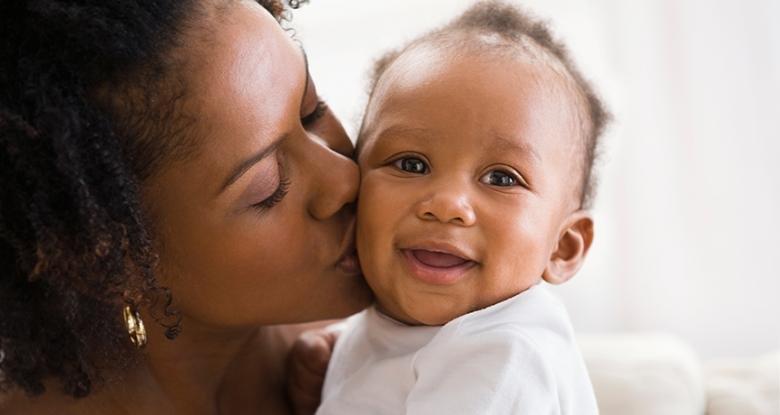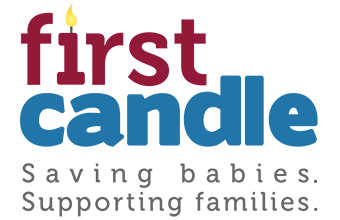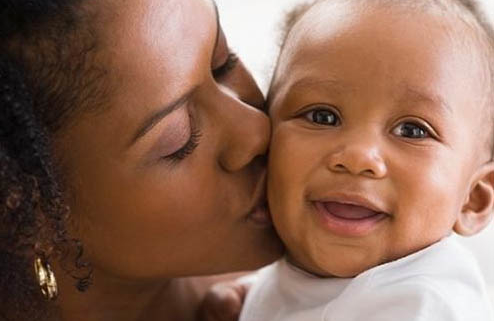Why black families aren’t getting messages about safe sleep and SIDS
Sudden Infant Death Syndrome and accidental suffocation claim the lives of over 3,600 babies every year in this country. These numbers haven’t moved in years and the racial disparity is great. The rates of SIDS and accidental suffocation are nearly three times higher among black babies.

Why? We know that by adopting the safe sleep recommendations developed by the American Academy of Pediatrics a great majority of these deaths could be prevented. But organizations that are delivering these messages often do it in a “one size fits all” manner. They aren’t first LISTENING and LEARNING from the black community.
They’ve left no room for the possibility that many families don’t want to follow these recommendations because they’re contradictory to cultural preferences. Or that they can’t follow them because there’s no other place for a baby to sleep except in the family bed.
Many times health care providers and state employees don’t explain why these recommendations are important, they simply tell a family this is what they must do. In many hospitals a brochure on safe sleep is handed to a new mom with no conversation and, at best, mom is being told to place baby on her back with no other information.
Here’s where many agencies and organizations are getting it wrong. They can talk at people forever and they’ll be tuned out. It needs to start with a conversation and an understanding of each family’s unique situation and challenges. That requires listening not talking.
When a family is worried about paying rent, keeping the utilities on and putting food on the table, they don’t have time to think about setting up a safe sleep environment. When grandma’s telling them that putting baby on her stomach to sleep is best and bed sharing is only a risk for overlay they’re not going to listen to a nurse or anyone else.
The other issue is accessing the information. Women need to start hearing about safe sleep and the importance of breastfeeding the moment they learn they’re pregnant as well as everyone in the family – dads, grandmas, aunties – anyone who will be caring for the baby. The conversations need to continue well into baby’s first year when mom and dad are exhausted and just want to get their baby to sleep. Too often however, they aren’t able to have these conversations with health care providers as they don’t have the ability to get to post-partum checkups due to transportation issues, work schedules and child care for other siblings.
At First Candle we’re changing things up with our program Straight Talk for Infant Safe Sleep. We don’t assume to know the cultural norms and social determinants of a community. We acknowledge that we need to partner with organizations in the community – churches, doulas, family support agencies, social services, public health providers – to first understand the lived experiences of black families in the community. We are students first. We discuss the social determinants and cultural norms of their patients/clients.
From there we discuss the safe sleep guidelines including the benefits of breastfeeding and the reasoning behind them. We then explore implicit bias that could be impacting how these messages are delivered to families and role play objections that might come up. Perhaps most importantly we explore provider’s feelings when a family chooses not to adopt these recommendations or simply can’t. That’s where the problem solving comes in – to help create the safest situation even if it’s not perfect with no judgement. For health care providers our program has been accredited and provides 5 contact hours.
To address the issue of connecting with families we go directly into the communities with a mobile safe sleep team and park at community centers, churches and grocery stores. Families can discuss problems they’re having getting baby to sleep, where the baby is sleeping, challenges with breastfeeding and receive safe sleep products. It provides the opportunity to not just speak with mom but everyone in the family and daycare providers who might be caring for babies.
It’s clear that something needs to change to start reducing the racial disparity in infant mortality and save babies’ lives. If the message isn’t being heard then it’s time to change the delivery. At First Candle we’re doing that and will continue to do so until we get all babies to their first birthday and beyond.
First Candle is a 501 (c)(3) committed to ending Sudden Infant Death Syndrome and other sleep-related infant deaths while providing bereavement support services for families who have lost a baby. Your donation will help support our bereavement program.




